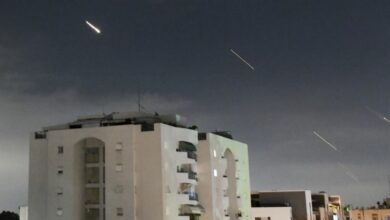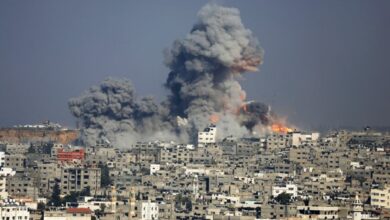What is the meaning of Israel’s withdrawal of its special forces from its border patrols in the south of the country, and transferring them to “more heated fronts,” as an Israeli military spokesperson described it?
One can view the matter as a logical redeployment of the Jewish state’s army. However, one could also see the winds of war blowing in the Israeli army’s movement. Replacing specially trained forces with reserve forces along the Egyptian and Jordanian borders, with the stated justification that there are more pressing borders to be defended (Syria and Lebanon), could be a sign that Israel is preparing for war.
Add this to the Israel and America’s escalating rhetoric against Iran, Syria and Hezbollah and you can see an attempt to create a climate suitable for a war the scope of which we cannot predict. What is certain, however, is that a direct confrontation with Iran is one of the scenarios the Israeli and American militaries expect.
Look how the United States has handled the supposed transfer of Scud missiles from Syria to Hizbullah. Consider that alongside its ongoing escalation with Tehran and its insistence on imposing a new round of sanctions. Look at how Washington has succeeded in convincing Iran’s principal allies, most notably Russia and China, to support sanctions. This all points to one thing: The Israeli army’s troop movements are a prelude to war.
Also note that Egypt’s surprising defense of Syria and Hizbullah during the Scud missile affair reveals the depth of the apprehension among typically conservative Egyptian diplomatic circles over Israeli and American preparations to ignite the region with a new conflict. This fear reached so deep that Egypt’s Foreign Ministry had no choice but to act to contain the danger and show its clear opposition.
Iran realized this, along with numerous regional and international powers, leading it to accept the offer from Turkey and Brazil to exchange nuclear fuel following exhaustive negotiations in an effort to delay an Israeli strike. Doing so also gives Russia and China the opportunity to reject sanctions, and allows Iran to present itself to the world as the more flexible party, giving the West hope that additional negotiations will be fruitful.
Perhaps you, like myself, believed that Barack Obama’s presence in the White House was a guarantee that the specter of war would be kept far from the region, particularly due to his rigid position toward Israeli settlement activity in the Occupied Territories. However, it is clear that he has failed to translate his conciliatory speech into action and place pressure on Israel. Such failure leads one to doubt Obama’s ability to contain the hawks, whether in his own administration or in Congress, or restrain Israel as it watches Iran edge closer to achieving its nuclear dream. War looms. Can you not see which way the wind blows?
Translated from the Arabic Edition.
Opinion




